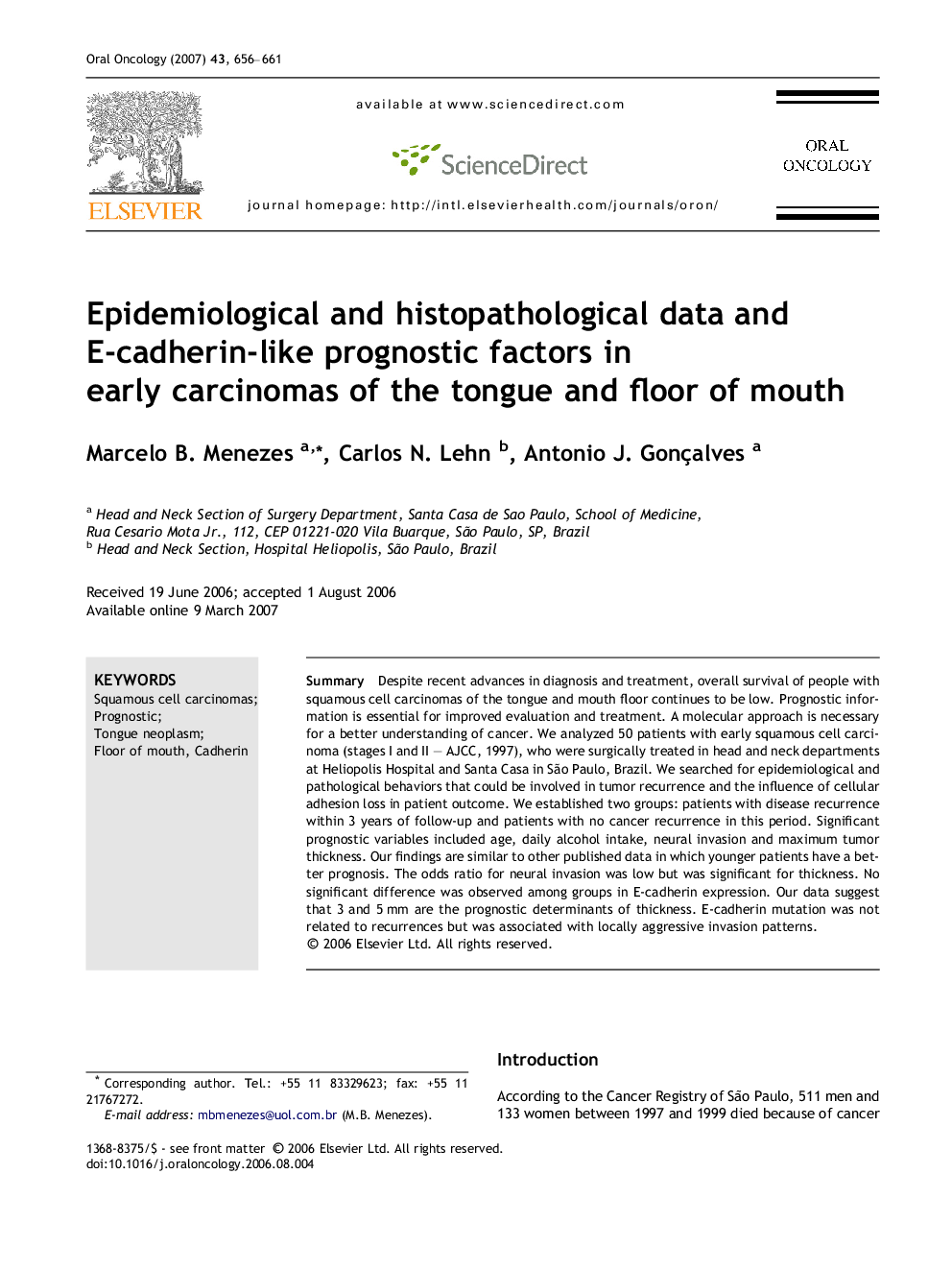| Article ID | Journal | Published Year | Pages | File Type |
|---|---|---|---|---|
| 3165923 | Oral Oncology | 2007 | 6 Pages |
SummaryDespite recent advances in diagnosis and treatment, overall survival of people with squamous cell carcinomas of the tongue and mouth floor continues to be low. Prognostic information is essential for improved evaluation and treatment. A molecular approach is necessary for a better understanding of cancer. We analyzed 50 patients with early squamous cell carcinoma (stages I and II – AJCC, 1997), who were surgically treated in head and neck departments at Heliopolis Hospital and Santa Casa in São Paulo, Brazil. We searched for epidemiological and pathological behaviors that could be involved in tumor recurrence and the influence of cellular adhesion loss in patient outcome. We established two groups: patients with disease recurrence within 3 years of follow-up and patients with no cancer recurrence in this period. Significant prognostic variables included age, daily alcohol intake, neural invasion and maximum tumor thickness. Our findings are similar to other published data in which younger patients have a better prognosis. The odds ratio for neural invasion was low but was significant for thickness. No significant difference was observed among groups in E-cadherin expression. Our data suggest that 3 and 5 mm are the prognostic determinants of thickness. E-cadherin mutation was not related to recurrences but was associated with locally aggressive invasion patterns.
